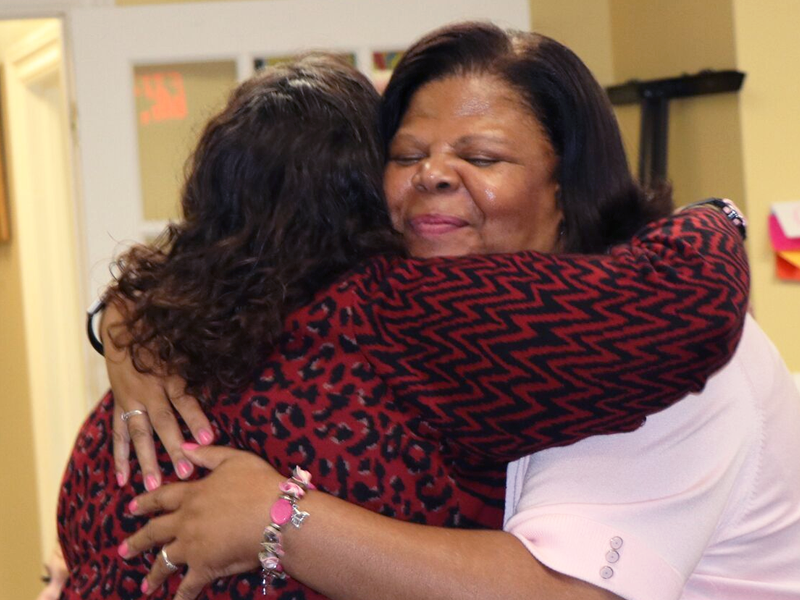Those words of wisdom from Michael J. Fox reflect a core reality about us as human beings. We long for meaningful connections. But in a culture where families are ripped apart, and loneliness and addiction are rampant, so many of our neighbors know nothing of the warmth, joy, and assurance of healthy relationships and a stable home life.
 That’s why Georgia Center for Opportunity is partnering with organizations like No Longer Bound, an Atlanta-based organization that enrolls men in a 12-month residential regeneration process to rescue addicts, regenerate men, and rescue families. Men who go through the program resolve wounds from their past, repair damaged belief systems, restore relationship health, and receive a new identity.
That’s why Georgia Center for Opportunity is partnering with organizations like No Longer Bound, an Atlanta-based organization that enrolls men in a 12-month residential regeneration process to rescue addicts, regenerate men, and rescue families. Men who go through the program resolve wounds from their past, repair damaged belief systems, restore relationship health, and receive a new identity.
Partnership with GCO
Staff at No Longer Bound noticed that men often came into their program with a history of broken romantic relationships. These men are eager to learn better ways to manage their relationships and earnestly want to become better husbands and fathers. Learning to identify a healthy partner and how to appropriately pace relationship development is a building block to supporting long-term recovery work.

As a result, GCO’s Healthy Families Initiative provided a healthy relationship curriculum to No Longer Bound to help their men improve their relationship skills.
Positive feedback
The curriculum and class led to positive feedback from the men who participated, like these:
“The class has given me tools to use and concentrate on while starting to date my wonderful girlfriend of 13+ years again.”
“The class put certain things in perspective for me.”
“It made me more conscientious of the dating process and how to respectfully court a lady.”
“The class gave me a more introspective way to view how relationships work. For the majority of my life, I’ve realized that it was all about the other person and how they could change me. But it’s just the opposite—it’s completely about changing my inner self. That translates to a lasting relationship.”
“The class helped me look inward and identify what kind of woman I want. Also what kind of man I want to be.”
More about HFI
If you want to discover ways you can help your neighbors find relational stability and a healthy family life, HFI is here to partner with you. HFI is a community-based program that joins with local churches, nonprofits, schools, and businesses to help people from all walks of life enjoy healthy, intact families and strong relationships. Click here for more.





 That’s why Georgia Center for Opportunity is partnering with organizations like
That’s why Georgia Center for Opportunity is partnering with organizations like 